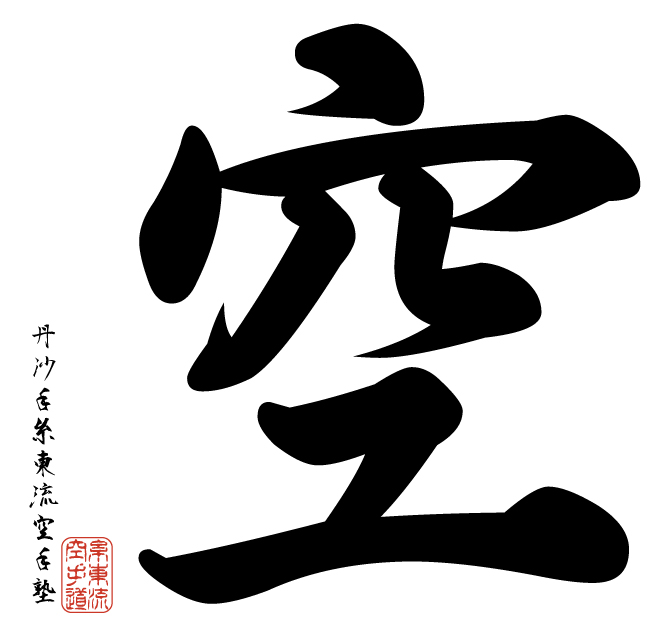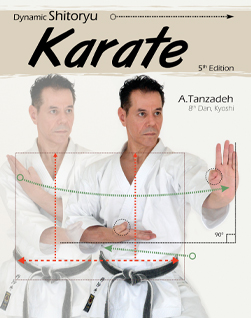The concept of “Kara” (空) or emptiness, holds significant philosophical and cultural importance in various contexts, particularly within Japanese Buddhism and traditional arts. Here’s a detailed exploration:
- Philosophical Significance:
- Buddhist Perspective: In Buddhist philosophy, “kara” represents the concept of emptiness or voidness (Sunyata). It is a fundamental principle in Mahayana Buddhism, particularly emphasized in schools such as Zen and Shingon. Emptiness refers to the absence of inherent existence or self-nature in all phenomena, including the self. Understanding emptiness is crucial for transcending suffering and achieving enlightenment.
- Interconnectedness: Emptiness implies that all things are interdependent and lack independent, inherent existence. Nothing exists in isolation, but rather in relation to everything else. This interconnectedness is central to Buddhist teachings on impermanence and the nature of reality.
- Artistic Expression:
- Visual Arts: In traditional Japanese arts like ink painting (sumi-e) and calligraphy (shodo), the concept of “ma” (間), often translated as “negative space” or “emptiness,” is crucial. It emphasizes the significance of space between objects or brush strokes. This space is not seen as empty in a negative sense but rather as a vital component of the composition, allowing for balance, harmony, and expression.
- Tea Ceremony: In the Japanese tea ceremony (chanoyu), the notion of emptiness is reflected in the minimalist aesthetics of the tearoom and the deliberate use of space. Emptiness in this context creates a tranquil environment conducive to mindfulness and appreciation of the moment.
- Martial Arts: Karate, as the artistic expression of Kara, embodies the profound essence of emptiness found within Japanese philosophy and traditional arts. Rooted in the concept of “kara” (空), which symbolizes emptiness, karate transcends mere physical combat to become a holistic pursuit of self-discovery and mastery.
In Karate, practitioners strive to embody emptiness not as a void, but as a state of profound awareness and clarity. Through disciplined training, they cultivate inner stillness, allowing them to respond spontaneously and effectively to any situation. Like a brushstroke on a blank canvas, each movement in karate is infused with intention and purpose, reflecting the practitioner’s inner state of harmony and balance.
Moreover, Karate serves as a medium for self-expression, where practitioners channel their emotions, experiences, and insights into their movements. Just as a poet crafts verses to express the ineffable, karate practitioners express their innermost essence through the fluidity and precision of their techniques.
Beyond the physical realm, Karate, as the artistic expression of Kara fosters a deeper understanding of the interconnectedness of all things. It teaches practitioners to embrace emptiness not as a negation of existence, but as a gateway to limitless potential and boundless creativity.
In this way, Karate transcends the boundaries of mere martial artistry to become a profound spiritual journey, where practitioners explore the depths of their being and discover the infinite possibilities within the emptiness of Kara.
- Personal Development:
- Mindfulness: Embracing emptiness can lead to a deeper understanding of oneself and the world. By letting go of attachments and preconceptions, individuals can cultivate mindfulness and awareness of the present moment.
- Freedom: Recognizing emptiness can liberate individuals from the burden of clinging to fixed identities or desires. It opens the possibility for personal growth, flexibility, and the discovery of new perspectives.
- Ethical Implications:
- Compassion: Understanding emptiness fosters compassion and empathy toward others. Recognizing the interconnectedness of all beings diminishes the barriers between self and others, leading to a more altruistic outlook on life.
- Non-Attachment: Embracing emptiness encourages non-attachment to material possessions and ego-driven desires. This can lead to greater contentment and a sense of inner peace.
In summary, the concept of “kara” or emptiness, permeates various aspects of Japanese culture and philosophy, offering profound insights into the nature of existence, artistic expression, personal development, and ethical conduct.






